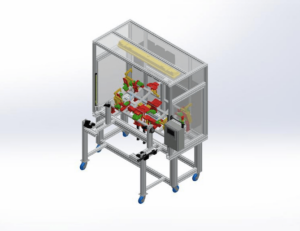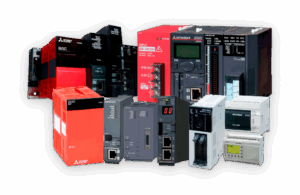In today’s fast-paced, tech-driven world, automation has become a cornerstone for industries aiming to improve efficiency, reduce costs, and increase output. As a key player in this technological shift, an automation company provides the tools and expertise to integrate advanced technologies into daily operations. In this article, we’ll explore the role of automation companies, their impact on different sectors, and the future of industrial automation.
What is an Automation Company?
An automation company specializes in delivering solutions that automate repetitive tasks, optimize production processes, and enhance operational efficiency. These companies offer a range of products and services, including robotic systems, software solutions, sensors, and control systems. Automation companies work closely with industries like manufacturing, logistics, healthcare, and energy to tailor their solutions to specific needs.
Automation is not just about replacing human workers with machines. It’s about enabling businesses to scale, reduce human error, and handle complex processes more efficiently. The companies behind these innovations play a pivotal role in the broader industrial ecosystem.
Services Offered by Automation Companies
Automation companies provide a wide variety of services designed to meet the evolving needs of industries. These include:
- Robotic Process Automation (RPA): RPA allows industries to automate routine tasks such as data entry, processing orders, and managing customer inquiries. Automation companies implement RPA to help businesses focus on more value-driven activities.
- Industrial Robots: Automation companies supply and maintain industrial robots used in assembly lines, packaging, and warehousing. These robots can handle heavy loads, work in hazardous environments, and operate 24/7 without fatigue.
- Custom Software Development: Many automation companies create customized software solutions for process control and monitoring. These systems ensure that every stage of production is optimized for maximum efficiency.
- Control Systems and PLC Programming: Programmable Logic Controllers (PLCs) are crucial for automating machinery and production lines. Automation companies offer expert PLC programming services to ensure seamless integration and operation.
- Sensors and Actuators: Automation relies heavily on sensors that collect data and actuators that perform actions based on that data. Companies provide an array of these devices, from temperature sensors to advanced motion detectors.
The Role of Automation Companies in Manufacturing
The manufacturing industry has been the biggest beneficiary of automation technology. For decades, automation companies have been helping manufacturers boost production rates and lower costs. Here’s how automation is transforming manufacturing:
1. Increased Productivity
Automation companies provide machines and systems that can work around the clock without the need for breaks, vacations, or shift changes. This results in higher production output and faster time to market for manufacturers. Automated production lines minimize the chances of bottlenecks and reduce downtime, leading to improved overall productivity.
2. Enhanced Product Quality
Human error is inevitable in manual processes, but with automated systems, precision is key. Automation companies use cutting-edge technologies like artificial intelligence (AI) and machine learning (ML) to improve quality control. Automated systems can detect defects with greater accuracy, ensuring that only high-quality products make it to the consumer.
3. Cost Reduction
Automation companies help manufacturers save money in various ways. Automated systems can reduce labor costs, minimize waste, and lower energy consumption. With robots and automated machines handling repetitive tasks, the need for a large workforce decreases, which leads to significant cost savings over time.
4. Flexibility and Scalability
As demand fluctuates, automation companies equip manufacturers with scalable solutions that can adjust to different production volumes. Whether it’s producing thousands of units or just a few, automated systems can be easily adapted to meet changing requirements.
The Impact of Automation on Other Industries
While manufacturing is a key sector, automation companies are expanding their influence across other industries as well. Let’s take a look at how automation is making waves in sectors like healthcare, logistics, and energy.
Healthcare Automation
Automation companies are at the forefront of revolutionizing healthcare through the development of robots, AI-based diagnostics, and automated administrative systems. Automated medication dispensers, robotic surgery assistants, and AI-powered diagnostic tools are just a few examples of automation in healthcare. These advancements are not only improving patient care but also reducing human error and allowing healthcare professionals to focus on more critical tasks.
Logistics and Supply Chain Automation
The logistics industry is another sector that has greatly benefited from the services of automation companies. Automated warehouses, autonomous delivery vehicles, and smart inventory management systems have streamlined operations, making supply chains more efficient than ever before. For example, Amazon’s use of robots in its warehouses has drastically reduced the time it takes to pick and pack items, significantly speeding up order fulfillment.
Energy Sector Automation
Automation companies are also playing a vital role in the energy sector by automating processes in power plants, oil refineries, and renewable energy systems. Automated control systems help monitor and adjust energy production in real-time, ensuring optimal efficiency. Additionally, smart grids powered by AI are improving energy distribution, reducing waste, and lowering operational costs.
The Future of Automation Companies
The future of industrial automation is bright, with new technologies emerging that will further revolutionize the way industries operate. Here are some trends that automation companies are expected to lead:
1. Artificial Intelligence and Machine Learning
AI and ML are already transforming automation by enabling machines to learn from data, adapt to changing conditions, and make real-time decisions. Automation companies are integrating AI into their products, allowing systems to become smarter and more efficient over time. AI-driven automation can predict equipment failures, optimize production schedules, and even design new products based on consumer preferences.
2. Collaborative Robots (Cobots)
Unlike traditional industrial robots that work in isolated environments, cobots are designed to work alongside human workers. Automation companies are increasingly offering cobots to industries where precision and human interaction are needed, such as healthcare, electronics, and pharmaceuticals. These robots enhance worker productivity and safety by performing tasks like lifting heavy objects or assembling small components.
3. Internet of Things (IoT)
The IoT connects machines, sensors, and systems, enabling them to communicate and share data in real-time. Automation companies are leveraging the IoT to create smart factories where machines can interact seamlessly with each other. IoT-enabled automation can improve maintenance by predicting when equipment will fail and automating repairs before a breakdown occurs.
4. 5G Technology
With the rollout of 5G networks, automation is set to reach new heights. 5G will provide faster, more reliable connections, allowing automation companies to develop even more complex systems that can operate remotely and in real-time. This will be particularly beneficial in industries like logistics and energy, where real-time data and control are critical.
5. Sustainability in Automation
Sustainability is becoming a major focus for many industries, and automation companies are playing a key role in this shift. By developing energy-efficient systems and processes, automation companies are helping businesses reduce their carbon footprint. From smart grids in energy to precision farming in agriculture, automation is driving sustainability across sectors.
Conclusion
Automation companies are not just service providers; they are catalysts for innovation, efficiency, and growth across various industries. By delivering cutting-edge technologies, they are helping businesses stay competitive in an increasingly automated world. From manufacturing to healthcare, logistics, and energy, the impact of automation is undeniable.
As industries continue to evolve, the role of automation companies will only become more critical. They will be at the forefront of integrating AI, IoT, and 5G into everyday processes, shaping the future of work, and making industries more efficient, sustainable, and profitable.
In conclusion, partnering with a trusted automation company can provide businesses with the tools they need to automate processes, reduce costs, and stay ahead of the competition. The future is automated, and the companies leading this charge are set to revolutionize the way we live and work.



